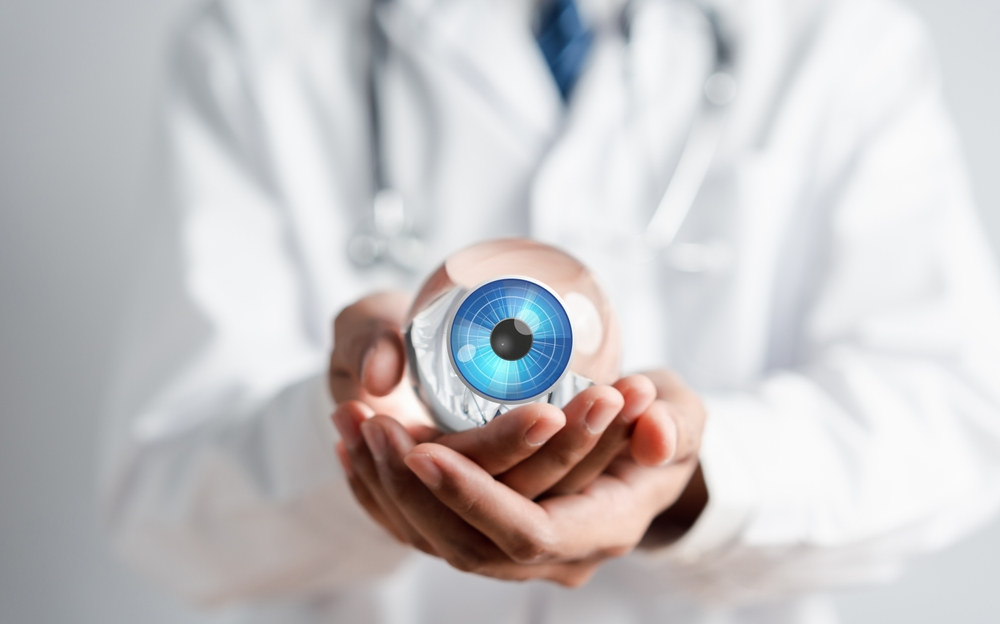Scientists Claim Pfizer COVID Vaccine Causes Eye Problems, But Experts Say the Evidence Doesn’t Hold Up

The internet has a way of turning medical headlines into panic. When a story claims that the Pfizer COVID-19 vaccine is linked to major eye damage, people naturally react with concern. Vision is one of the senses people fear losing most, so any suggestion that a vaccine could harm it is bound to cause anxiety. The problem is that these claims rarely match the strength of the evidence behind them. Most are based on isolated incidents, incomplete data, or misinterpreted studies. When we look carefully at the science, there is little to suggest that the Pfizer vaccine damages eyesight in any meaningful way.
Since the beginning of the pandemic, misinformation has circulated faster than most public health corrections can catch up. This is especially true with vaccine stories. Every small finding, whether from a lab experiment or a single patient report, gets amplified and distorted by headlines that make it sound catastrophic. It’s no surprise, then, that a claim about eye damage would take off. But science requires patterns, not anecdotes. A handful of reports does not prove causation. What’s more, most people who developed vision problems after vaccination had other health conditions that could have caused them.
When millions of doses are administered, a few individuals will coincidentally experience medical issues afterward. This is called temporal association, meaning that one event follows another without necessarily being linked. It’s an easy mistake to confuse timing with cause. To find out whether a vaccine truly causes a problem, researchers compare how often the issue occurs in vaccinated people versus unvaccinated groups. If the rates are the same, the vaccine likely isn’t to blame. That’s exactly what large-scale studies have found when it comes to eye complications after mRNA vaccines like Pfizer’s.

Image Credit: Sutterstock
What the Data Actually Shows
The Centers for Disease Control and Prevention (CDC) reports that the vast majority of Pfizer vaccine side effects are mild, temporary, and expected. These include arm soreness, fatigue, muscle pain, chills, fever, and mild headaches. They are short-lived and typically resolve within a few days. Importantly, the CDC does not list vision-related problems as recognized side effects of any COVID-19 vaccine. That absence speaks volumes. With hundreds of millions of doses given worldwide, any consistent or severe effect on eyesight would have become obvious by now.
Large-scale studies back this up. A major analysis published in JAMA Ophthalmology reviewed the medical records of over three million people and found no meaningful increase in retinal vascular occlusion or other serious eye problems following vaccination. The study compared vaccinated individuals with those who received other vaccines, such as for influenza or tetanus, and found the rates of eye issues to be nearly identical. This finding supports the idea that most reported eye symptoms are simply coincidental, not caused by the vaccine itself.
Canadian health authorities reached similar conclusions. After reviewing reports of ocular adverse events following vaccination, they determined that the number of cases was so small that it did not signal any safety concern. The Public Health Agency of Canada stated that these rare reports were being monitored but did not change the vaccine’s overall safety profile. In plain terms, the risk is extremely low. These findings have been echoed by ophthalmology groups and global health agencies, which continue to recommend vaccination as a safe and effective tool for preventing severe COVID-19.
What About the Rare Case Reports?
There have been scattered reports of people developing eye issues such as blurry vision, inflammation, or temporary loss of sight after vaccination. These cases are valuable for study but must be interpreted cautiously. In most instances, doctors could not prove a direct connection between the vaccine and the eye condition. Many patients had pre-existing problems such as diabetes, autoimmune disease, or high blood pressure, all of which can affect vision. When symptoms did appear, they often improved with treatment or resolved on their own.
A few small studies have explored possible short-term changes in eye structures after vaccination, such as corneal swelling or inflammation. These studies, however, involved small numbers of participants and lacked control groups, meaning they cannot establish cause and effect. Scientific conclusions require consistent, replicated evidence across multiple large studies, not isolated findings. So far, that kind of proof does not exist for any COVID-19 vaccine and eye damage.
It’s also worth noting that case reports are common for all vaccines and medications. People have developed eye symptoms after flu shots, shingles vaccines, and even antibiotics. This does not mean those products are unsafe; it simply means human biology is complex, and occasional reactions happen. Without repeated, statistically significant findings, scientists treat such reports as interesting observations rather than warnings.

Image Credit: Sutterstock
The Bigger Picture: COVID-19 Itself Can Harm the Eyes
While fears about vaccine-related eye problems dominate headlines, the real threat may come from COVID-19 infection itself. The virus has been linked to several eye complications, including inflammation of the retina, optic neuritis, and blood vessel blockages in the eyes. COVID-19 triggers inflammation throughout the body and can affect tiny blood vessels, including those in the eyes. In some patients, this has led to lasting vision problems and even partial blindness.

Image Credit: Sutterstock
Multiple studies have confirmed that these complications are more common in people who became infected with the virus than in those who were vaccinated. In fact, vaccinated individuals tend to have fewer inflammatory eye conditions overall. Vaccination helps reduce the risk of severe illness, which in turn lowers the risk of eye-related complications caused by the infection itself. So, if your goal is to protect your vision, getting vaccinated is actually the safer path.
Infections can damage the eyes directly or indirectly through the immune system’s response. By preventing severe infection, the vaccine shields the eyes from the inflammation and clotting problems that COVID-19 can cause. This perspective often gets lost when people focus on sensational stories about side effects. The full picture shows that vaccination is not a threat to your eyes but rather a way to reduce your overall health risks, including those that affect vision.
Why False Health Claims Spread So Quickly
Vaccine-related misinformation thrives online because it plays on fear. When someone reads about possible blindness or eye damage, it activates a natural emotional response: fear of losing one’s sight. This emotional reaction is powerful and immediate, while fact-checking is slow and methodical. Social media platforms reward the most shocking and dramatic claims, giving them far more visibility than careful scientific explanations. Once these posts spread, they are rarely corrected or retracted, even when proven false.
Another reason such claims persist is that people often confuse timing with causation. If a person notices vision problems days after a vaccine, it feels natural to assume the vaccine is the cause. The human brain looks for patterns, even when none exist. Without understanding how common these conditions are in the general population, it is easy to misattribute cause. Medical experts call this confirmation bias, and it drives much of the misunderstanding around vaccine side effects.
The best defense against misinformation is education and context. When we understand how vaccine monitoring systems work, it becomes easier to interpret reports correctly. Every potential side effect is investigated by doctors and epidemiologists, who look for clusters or patterns. When those patterns do not appear, scientists conclude that the issue is random, not vaccine-induced. Learning how to read health news critically helps protect both your body and your peace of mind.

Image Credit: Sutterstock
How to Protect Your Eyes and Your Confidence
If you develop vision symptoms after any vaccination, including the Pfizer COVID-19 vaccine, don’t panic. Most of the time, these symptoms have other explanations. The right step is to schedule an appointment with an eye doctor for evaluation. Early detection makes treatment easier and prevents complications. Even if the vaccine is not the cause, eye problems should never be ignored.

Image Credit: Sutterstock
Keeping your eyes healthy requires steady attention and lifestyle care. Here are some habits that protect both your vision and your overall health:
• Get regular eye exams, especially if you have diabetes, high blood pressure, or a family history of eye disease.
• Eat foods that nourish your eyes, including leafy greens, citrus fruits, fish rich in omega-3s, nuts, and colorful vegetables.
• Manage chronic conditions such as diabetes and hypertension, which can quietly harm your eyesight over time.
• Wear protective eyewear outdoors and while using digital devices to prevent strain and UV damage.
• Stay hydrated, maintain good sleep habits, and take breaks from screens throughout the day.

Image Credit: Sutterstock
When it comes to vaccine safety, trust reputable medical sources and avoid relying on anecdotal stories or viral posts. Your healthcare provider, the CDC, and organizations like the American Academy of Ophthalmology offer reliable, evidence-based updates on vaccine monitoring and eye health. Listening to professionals who analyze large data sets will always give you a clearer picture than a single dramatic headline.
Featured Image via Shutterstock.com
Loading...

